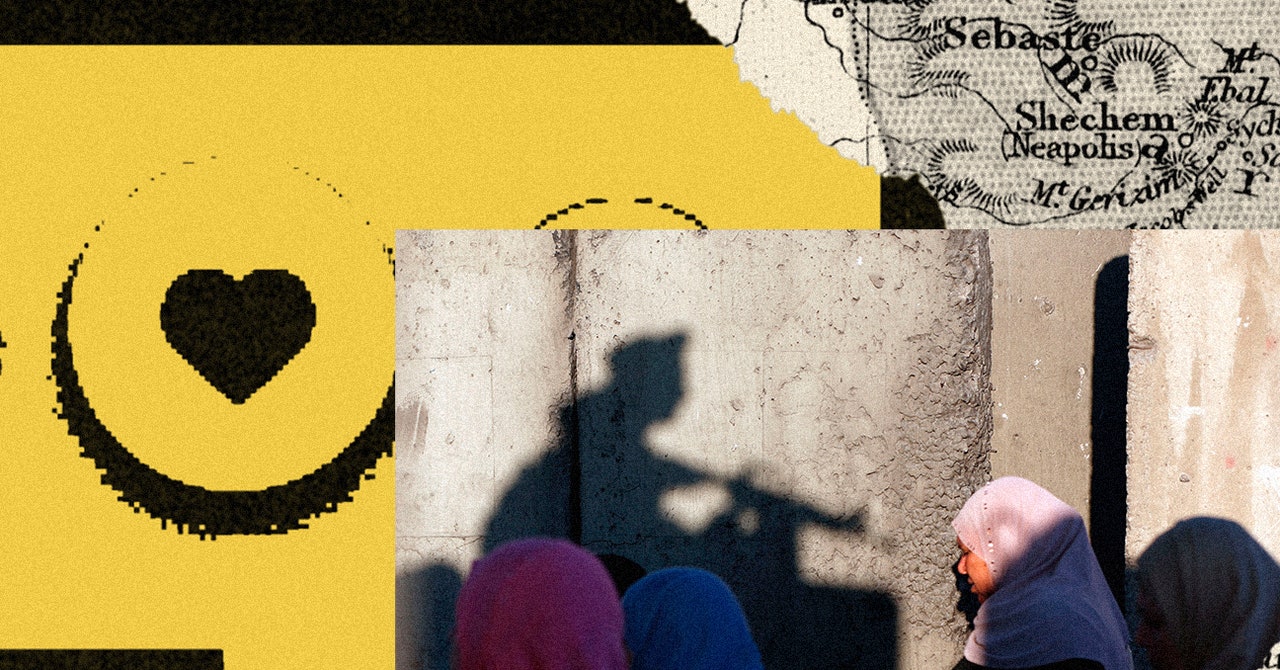Tinder Thinks Love Has No Borders—Even in the West Bank

On the ground, the particular geopolitical situation of Israel and Palestine, with its checkpoints and patchwork of territorial designations, also shapes who uses Tinder’s service and how. Although the interface includes no explicit mention of the separation barrier aside from a dashed gray line to indicate a disputed border, users in the region face a significant obstacle: When Palestinians and Jewish Israelis do match, there is often no legal way for them to meet without leaving the country entirely, despite their geographic proximity when swiping. Israelis can cross the Green Line to travel on segregated roads to Israeli settlements, but not to Palestinian cities or villages. Palestinians in the West Bank, meanwhile, cannot cross the Green Line at all without a permit, which can be exceedingly difficult to obtain. Palestinians who do have a Jerusalem ID or hold Israeli citizenship can travel freely in Israel and Palestine to go on dates when they find a match. But the users I spoke with who do not have this freedom of movement say they are deterred by the fact that the vast majority of people they see on the app are either on the other side of a line that they cannot cross, or are located in Israeli settlements, where it is generally unsafe for them to travel. As a result, in the occupied West Bank the ability of different populations to use Tinder’s service to talk to and meet geographically proximate people varies, largely along ethnic lines.
Of course Tinder is not itself responsible for the injustices of military occupation. Still, in not acknowledging the ways that existing political dynamics impact the scope of their service, the company effectively normalizes occupation, treating de jure segregation (and the access differential it creates) as an acceptable condition under which a geolocation-based dating app can operate.
Samir, for his part, encountered these obstacles many times. In the early days of our friendship, he told me that if I did come to Ramallah I would be the first person from the app he’d meet in person while swiping from Palestine. He had matched with Jewish Israelis before, but until I crossed the Green Line, his Tinder relationships had been purely virtual.
“A couple times we got to know each other and they’d say, ‘If you’re ever able to get a permit and you can come in, hit me up,’ but it never happened,” Samir recounts. He also mentions matching with an Israeli woman in Ariel, a nearby settlement, on Tinder, but says he was uncomfortable when he found out where she lived.
“She invited me to come to Ariel,” he tells me, “but I said, ‘Hell no.’”
In recent years, we as users have collectively begun to question the idea that technology companies bear no responsibility when their platforms are used to disseminate misinformation, sway elections, and wage war. What we have not paid enough attention to, however, is the potential for the core functionality of the technology itself to have incidental political implications, and for nonpartisan companies to participate in marginalization by default. Often, it seems, their obligation to thoughtfully and carefully navigate the geopolitical circumstances of prospective markets is overlooked by a culture that, even amid a techlash, sees access to the free market of technological tools as an indicator of progress.
